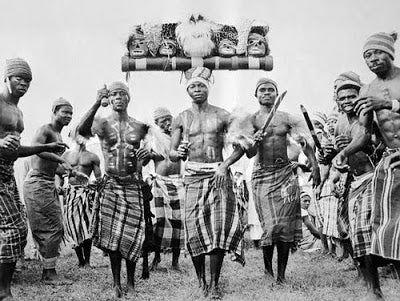
Igbo Traditional Beliefs & Christianity: A Harmonious Intersection
Share
The Igbo people, whether at home or in the diaspora, have a deep-rooted cultural and spiritual system that has thrived for centuries. Before the advent of Christianity, the Igbo Traditional Religion provided a robust framework for understanding the divine, morality, and the cosmic order. However, the coming of Christianity introduced new beliefs, leading to a gradual blending and reinterpretation of spiritual practices. Interestingly, the Igbo worldview already had strong parallels with Judeo-Christian beliefs, making the transition into Christianity less of a drastic departure and more of an evolution.
The Igbo Concept of God
Long before Christian missionaries arrived, the Igbo already had a firm belief in a Supreme Deity, known as Chukwu or Chi-Ukwu—the Almighty God. This Supreme Being was understood to be omnipotent, omniscient, and omnipresent, governing all aspects of existence. The belief in an all-powerful God was a fundamental principle of Igbo spirituality, closely mirroring the monotheistic views found in Judaism and Christianity.
However, within the Igbo religious framework, Chukwu worked through numerous spiritual intermediaries known as alusi. These forces, created by God, were tasked with maintaining order in human affairs—rewarding virtue and punishing wrongdoing. This concept is remarkably similar to the role of angels in Judeo-Christian tradition, acting as divine messengers and enforcers of moral codes.
Ancestral Veneration vs. Worship
A common misconception is that the Igbo people worship their ancestors. In reality, the practice is one of veneration, akin to how Christians honor saints. The Igbo believe that ancestors serve as intermediaries between the living and the divine, offering guidance and protection to their descendants. This perspective aligns closely with the Christian tradition of seeking intercession from saints, highlighting yet another area of similarity between Igbo spiritual traditions and Christianity.
The Role of Rituals and Sacred Objects
Sacred objects and rituals play a key role in Igbo Traditional Religion, serving as a means of divine communication. Among the most prominent are kolanut (ọjị) and white chalk (nzu), both symbolizing purity, peace, and spiritual connection. Breaking kolanut and offering prayers is an act of devotion, much like Christian prayers of thanksgiving. The kolanut is shared in communal gatherings to promote goodwill, unity, and divine favor.
White chalk (nzu) is used to invoke blessings and mark sacred spaces, symbolizing purity. Unlike some religious traditions that emphasize ritual blood sacrifices, the Igbo primarily use symbolic offerings, prayers, and libations to honor God and seek guidance.
The Igbo strongly believe that God does not cause death or suffering. Instead, supernatural forces such as Ekwensu (recognized as the devil in Igbo cosmology) or certain alusi are believed to influence misfortunes based on moral and spiritual transgressions. This reinforces the Igbo view that God desires peace, prosperity, and longevity for all people.
A Convergence of Faiths
Given these similarities, it is no surprise that Christianity found fertile ground among the Igbo people. The pre-existing belief in one Supreme God, a structured moral code, and the concept of spiritual intermediaries made the transition more seamless than in many other cultures. While Christianity introduced new doctrines, many Igbo people have continued to blend their traditional beliefs with Christian practices, leading to a unique religious identity that honors both their heritage and faith.
Conclusion
The relationship between Igbo Traditional Religion and Christianity is one of synthesis rather than replacement. Instead of completely abandoning their spiritual heritage, the Igbo have found ways to integrate their cultural beliefs with Christian teachings, creating a rich and dynamic faith experience. By recognizing these connections, the Igbo people, especially those in the diaspora, can strengthen their cultural identity while embracing the spiritual evolution that continues to shape their worldview.
Citations:
Ogbukagu, Ik. N. T. Traditional Igbo Beliefs and Practices. Novelty Industrial Enterprises Ltd., 1997.
